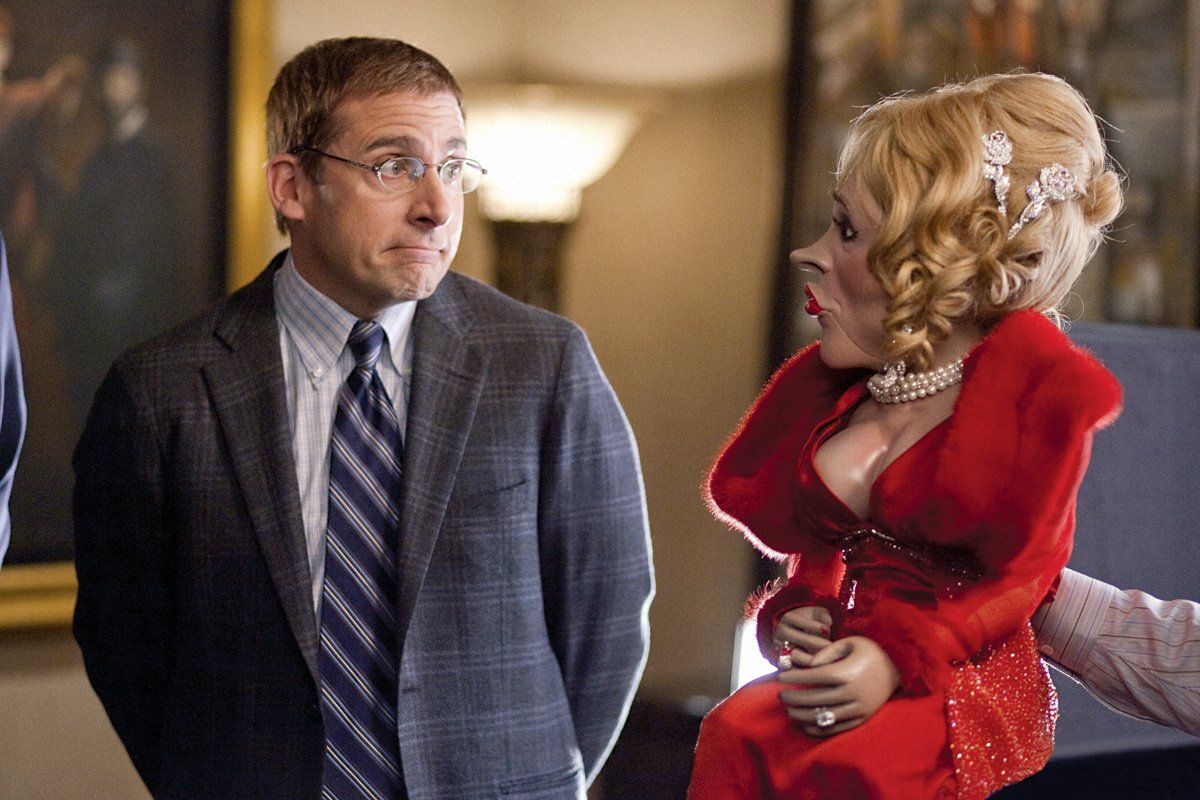
The movie is called Dinner for Schmucks, so naturally the climax happens at a dinner. Steve Carell plays Barry, a schmo (yes, you need Joys of Yiddish to read this story) who makes dioramas featuring dead, but cute, mice. He's invited to dine by a group of self-satisfied businessmen who hold a regular contest to see who can bring along the most obnoxious dinner guest. Barry's competition for freak of the week includes a blind fencer, a ventriloquist with a dirty-mouthed puppet, and a pet psychic who communes with the spirit of the lobster entree. The scene, which was largely improvised, has the feel of a "Dueling Banjos"–style throwdown, as each actor strives to out-funny the next. It's tailor-made for Carell and his compatriots in unbridled lunacy, including costars Paul Rudd and Zach Galifinakis. The funny thing is, Schmucks is actually a remake of the French comedy The Dinner Game. Even funnier: the French version ends before the freak-show dinner can take place.
That's because, as the French version makes clear, the dinner is not the point. Schmucks is putatively about the relationship between "normal" businessman Tim (Rudd) and his freak, and tweaking our idea of which one is the actual schmuck (tagline: Takes One to Know One). But the American version is about more than just male bonding: it's a glimpse into how truly conservative our comedy has become.
Dinner for Schmucks is directed by Jay Roach, who made Meet the Parents and, along with Adam McKay, Judd Apatow, and others, specializes in comedies featuring normal, nice guys—shmoes, not schmucks—who are pushed to their limits. (Think of Paul Rudd and Seth Rogen's psychedelic-mushroom freakout in Knocked Up.) But these movies are much safer than they appear. In Dinner for Schmucks, it is quickly and firmly established that the only reason nice-guy Tim agrees to participate in the rope-a-dope dinner is because he wants to get ahead at work, and the only reason he wants to get ahead at work is so his girlfriend will marry him. Of course, we know that his logic is flawed: his girlfriend can't really care about how much money he makes; otherwise, we wouldn't root for him to wind up with her. But it allows his character to remain sympathetic. In the French film, Pierre (the Tim character) is unconflicted about the dinners—he finds them hilarious.
The imperative of modern American comedies is that the protagonists change and grow, and that growth always takes place in the direction of societal norms. In Knocked Up, Ben becomes a responsible father. The 40 Year Old Virgin and Forgetting Sara Marshall conclude with their protagonists in happy relationships, while I Love You, Man and The Hangover end in weddings. Though the premise of Dinner for Schmucks is deeply cruel, we are supposed to laugh, because we trust that by the closing credits the characters will have matured into upstanding men. Too bad Hollywood doesn't give the audience credit for being mature, too.
Uncommon Knowledge
Newsweek is committed to challenging conventional wisdom and finding connections in the search for common ground.
Newsweek is committed to challenging conventional wisdom and finding connections in the search for common ground.
About the writer
To read how Newsweek uses AI as a newsroom tool, Click here.








